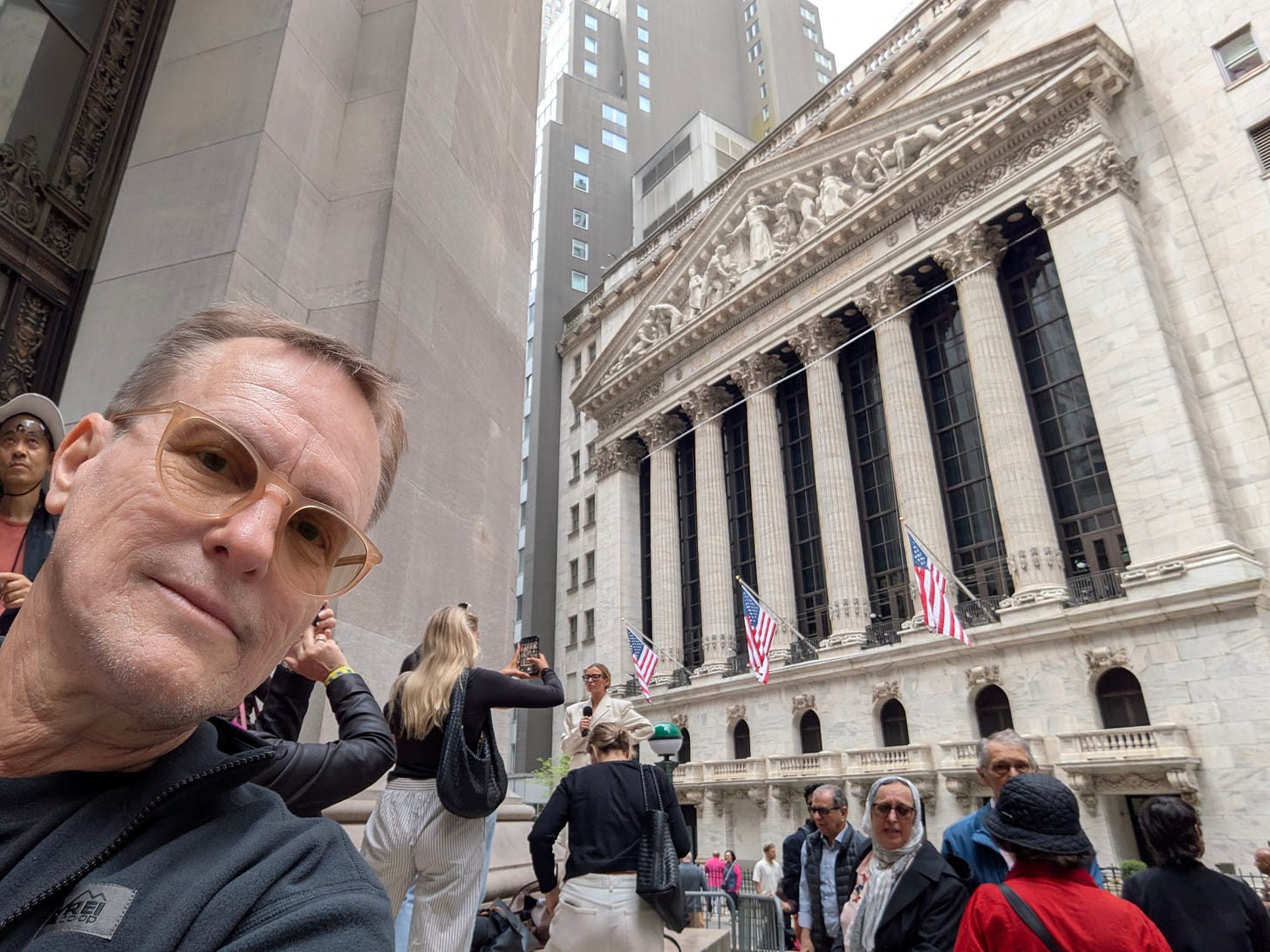Addendum 6. Continuing diversification into international + Mexico residency as a diversification strategy
The only response to a deteriorating political if not necessarily market environment is further diversification.
In the last Addenda post, I talked about diversifying my assets into international. I wrote that I was aiming for about 25% of my portfolio to be allocated to Vanguard’s Total International Stock Index Fund (VTIAX).
As of this writing, I’m at around 18%. I’m making the transition gradually at the beginning of every quarter. My thinking is that I don’t want to move too fast although going from zero to 25% in less than a year could be considered fast by many investors. The timing is so that I can both benefit from quarterly dividends from current investments and watch how things go.
For context, the traditional “60/40” portfolio is a term usually assigned to a stock/bond mix of 60% stocks, 40% bonds. It has also been applied to diversification within an asset class, such as stocks (60% domestic US stocks, 40% international stocks). Even Vanguard offers a 60/40 fund for just stocks (VTWAX).
My approach has been to limit, for now, my international exposure to 25%. This is simply a more conservative (hopeful? wishful thinking?) approach that may end up being an interim step to more aggressive diversification away from US assets.
My reasoning remains that the United States is moving faster than many would have predicted towards a “stagflationary” economic environment (high tariffs combined with disappointing employment numbers), according to those that I follow and trust.1 Most don’t see a market crash under these circumstances, but for me, further diversification of my small nest egg just seems prudent.2
I’m also starting to consider a more permanent anchoring in Mexico, where I enjoy the privilege of temporary residency. Until now, I’ve mostly split my time between Mexico and the United States.
The lesson in Part 4 of The Formula, the “own everything” approach, is about diversification. Outside of finances, that can mean having options. It’s not perfect because we can’t escape the circumstances of our lives entirely. But I’d rather have the option to sit out the turmoil if I need to.
Most risk averse people paying attention can see the US political climate is looking decidedly fascist these days. According to writers and commentators I trust, what we are seeing has the potential to get very ugly.3
The best time to diversify is before you need to. Therefore, I’m hoping to find a longer term living arrangement in Mexico by the first quarter of 2026.
Doing so should not be interpreted as abandoning the US in its hour of need. As I see it, exile has always played an important part in the history of opposition movements.
Above, a trip to Wall Street, May, 2025
See Paul Krugman’s Substack for measured but authoritative writing on our current moment. I also recommend Steve Eisman’s podcast for thoughtful and even takes on weekly developments. Unlike Krugman, Eisman is best described as agnostic on politics or at least he plays those cards close to his vest. There are more I listen to and trust, but these voices are a good start, mainstream (not prone to conspiracy theorizing), and widely distributed.
Another disturbing new set of developments threatens unintended consequences. That is the attempt to gain control of the Federal Reserve’s FOMC to politicize interest rates, the effective selling of export licenses to China (NVIDIA), and finally government strong-arming their way into stakes in private companies (INTEL). None of this is orthodox and where it’s going has the potential for market distortions that will not be good for a US centric portfolio.
I’m reading a lot of Timothy Snyder, Heather Cox Richardson, and Anne Applebaum on these issues. None touch on the personal finance implications of our current moment except indirectly. Snyder and Richardson are historians. Applebaum is a journalist who’s covered authoritarian regimes around the world for decades. And there are many more, easily findable historians, journalists, and former government officials that aren’t drinking somebody’s kool-aid.


